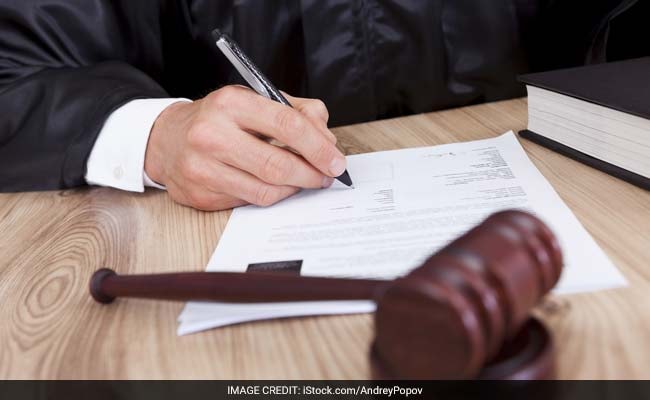
A sessions court in Mumbai has issued non-bailable warrants against two Pakistan Army officials - Major Abdul Rehman Pasha and Major Iqbal - in connection with the 26/11 Mumbai terror attacks case.
While Abdul Rehman Pasha has retired, the prosecution believes Iqbal is still serving as an ISI official in Pakistan, as disclosed by US-born Lashkar-e-Taiba (LeT) terrorist David Coleman Headley, an approver in the case.
Both Iqbal and Pasha are listed as wanted accused in the charge sheet filed by the Mumbai Police's crime branch in the case.
Additional Sessions Judge SV Yarlagadda on January 21 allowed an application filed by special public prosecutor Ujjwal Nikam.
The application was filed before the court which is presently conducting trial against alleged LeT operative Sayyed Zabiuddin Ansari alias Abu Jundal in the 26/11 Mumbai terror attacks case.
Special public prosecutor Ujjwal Nikam said in the application that the role of the two Pakistani army officials was revealed further during the testimony of David Headley on the conspiracy hatched in the case.
David Headley, who is currently in a US prison, turned approver in the case and his testimony was recorded via video conference in 2016.
"David Headley's testimony has vindicated India's stand that the terror attacks of November 26, 2008 were not only sponsored by terrorist groups of Pakistan, but were in fact, actively supported by Pakistan Army officials," Mr Nikam told news agency Press Trust of India.
Judge Yarlagadda, after perusing the application, supplementary chargesheet filed by the crime branch and hearing brief arguments from Mr Nikam, said he was allowing the application.
"The application filed by the prosecution for issuance of non-bailable warrant against the two persons (Pasha and Iqbal) is allowed. These two persons are shown as wanted suspects. The approver, David Headley, has named them in his evidence," the court said.
"Hence, issue non-bailable warrants against both the accused persons," the court ordered and posted the matter for further hearing on February 6.
David Headley in his testimony before the court had claimed that during the conspiracy to commit the terror attacks in Mumbai, Major Iqbal and Major Pasha were present in the meetings during which targets were selected.
Lashkar-e-Taiba operatives Sajeed Mir, Abu Kaahfa and Zaki-ur-Rehman Lakhvi were also present in the meetings, David Headley had said.
Mr Nikam said David Headley's oral testimony is not the only evidence against these two persons (Pasha and Iqbal) and that the prosecution also has in its possession corroborative documentary evidence.
David Headley had visited Mumbai in September 2006 and informed Iqbal about his surveillance of Hotel Taj in south Mumbai and on his return to Pakistan, he had handed over photographs and videos of the same. He also said that Iqbal gave him USD 25,000 to spy in India.
David Headley further claimed that Iqbal had asked him to also get classified information about Bhabha Atomic Research Centre (BARC) and of political party Shiv Sena's office, 'Sena Bhawan', located in central Mumbai.
He said he had also received Rs 80,000 from Pasha for carrying out surveillance work in India.
According to Mr Nikam, David Headley had been in regular contact with Pasha during the course of the conspiracy, planning and execution of the attack.
"It is pertinent to note that Headley in his testimony had said Pasha wanted the National Defence College in New Delhi also to be included in the target list and had, in fact, told Headley that if the attack on the army college was successful then they would be able to kill more brigadiers and generals than they have in the past," Mr Nikam said.
On November 26, 2008, 10 Pakistani terrorists arrived by sea route and opened fire indiscriminately, killing 166 people, including 18 security personnel, and injuring several others, besides damaging property worth crores.
The attacks lasted three days. The places that were attacked included south Mumbai's Chhatrapati Shivaji Maharaj Terminus railway station, the Taj Mahal Hotel, the Trident Hotel, Cafe Leopold and Chabad House.
While nine of the terrorists were killed during the siege, Ajmal Kasab was caught alive by Mumbai Police and later sentenced to death.
Track Latest News Live on NDTV.com and get news updates from India and around the world

